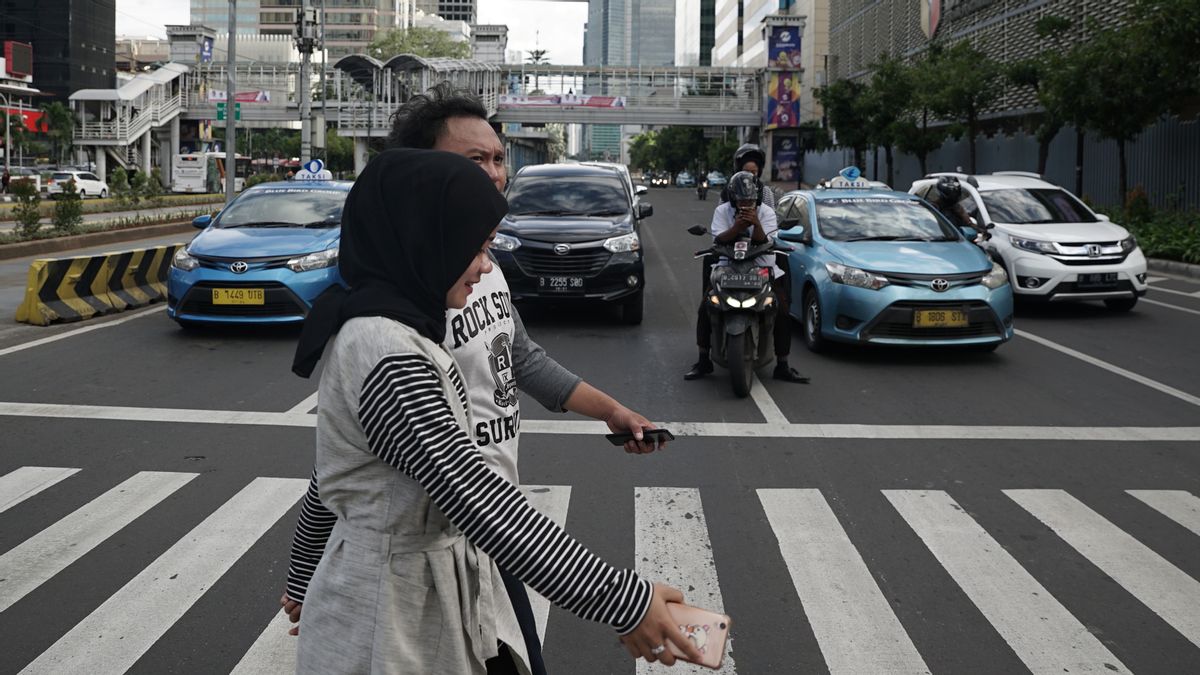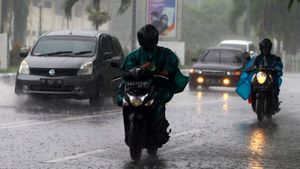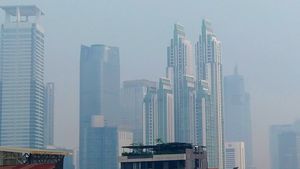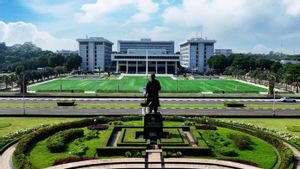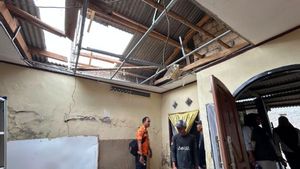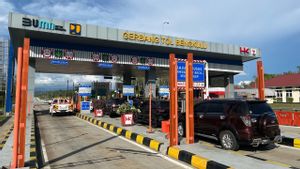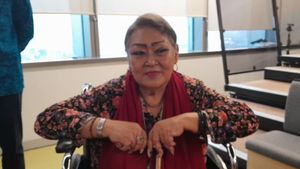JAKARTA - Chairman of the Expert Team Chairperson of the Task Force for the Acceleration of Handling COVID-19, Wiku Adisasmito, said that the number of COVID-19 spread in DKI Jakarta is decreasing. This data, he said, comes from risk map data owned by the Task Force.
Even though it has declined, Jakarta is still asked to be alert to the possibility of a second wave after people have returned from their hometowns.
"Jakarta has started to decline. However, if the travelers who insist on going back to Jakarta and carrying disease, could become a second wave," Wiku said in a press conference broadcast on the BNPB account, Tuesday, May 26.
If DKI decreases, Wiku will say the opposite for the East Java region. He said, in East Java the number of the spread of COVID-19 was on the rise. So he asked, this matter could be resolved immediately by the Governor of East Java Khofifah Indar Parawansa and his staff so that the number could decline again.
In the press conference, Wiku also said that at this time the Task Force continued to look at the picture of the spread of COVID-19 throughout Indonesia through a risk map. This map, obtained from data that comes in from various laboratories every day.
This map, he said, could be a reference for local governments to make policies in their areas. For example, to implement Large-Scale Social Restrictions (PSBB) or to relax or revoke the policy.
In addition, this map can also be a reference for people to travel in peace. The trick is to download the Unified Against COVID application on the Playstore for Android and the Appstore for iOS. In this application, the community can also help the Task Force to map the risks around them.
"If the community participates in filling it out, we can draw a map of the risks around us," he said.
In addition, people who travel frequently are also required to download this application. Especially for non-KTP Jabodetabek residents. The goal is that when they come to Jakarta they can immediately show the Entry-Entry Permit (SIKM) at the city border. So, the inspection process can be faster because you only need to show the QR code which is then checked by the officer.
"That way we can connect to this system, we can know the risk map, we can explain if we have symptoms, we can consult there," he said.

Wiku also explained what aspects a region must fulfill to be ready to start interrupted socio-economic activities in the midst of the COVID-19 pandemic again. He said, based on the recommendations of the World Health Organization (WHO), there are three aspects that must be considered by the government, namely epidemiology, public health surveillance, and health services.
In the epidemiological aspect, he said, an area is declared to have progress if there is a decrease in the number of positive cases, the number of patients being treated, the number of patients under surveillance, and the number of people under surveillance by 50 percent. The number of COVID-19 cases who have died must also decrease, although the number is not standardized to 50 percent.
Furthermore, this epidemiological aspect must be accompanied by an increase in public health surveillance, or an increase in the number of specimens examined.
"So there are many laboratory tests but many are negative. Do not let the number be checked a little, it continues to appear to fall. If you don't check it after a long time, zero. So the examination goes up, the positive result must be small under five percent," said Wiku.
Meanwhile, regarding health services, said Wiku, the local government must correctly calculate the availability of the number of beds available to treat COVID-19 patients. He did not deny, at this time, the COVID-19 Task Force had not recorded properly, so he asked for the participation of local governments so that they could improve existing data.
"This aspect of health services has not been collected properly. It needs the participation of local governments to improve health services," he concluded.
The English, Chinese, Japanese, Arabic, and French versions are automatically generated by the AI. So there may still be inaccuracies in translating, please always see Indonesian as our main language. (system supported by DigitalSiber.id)
